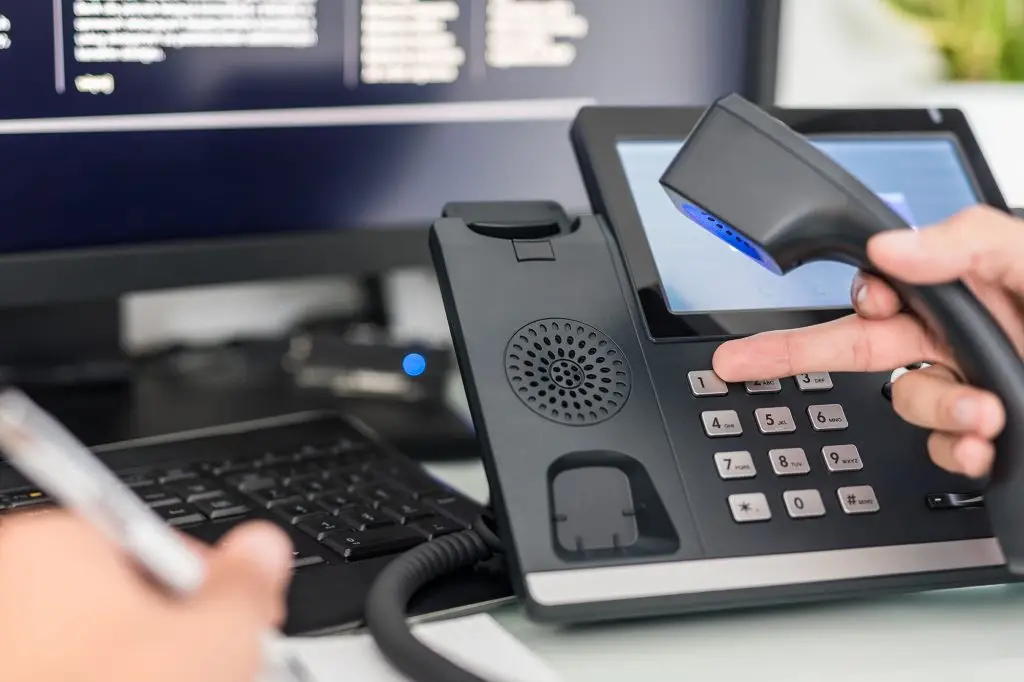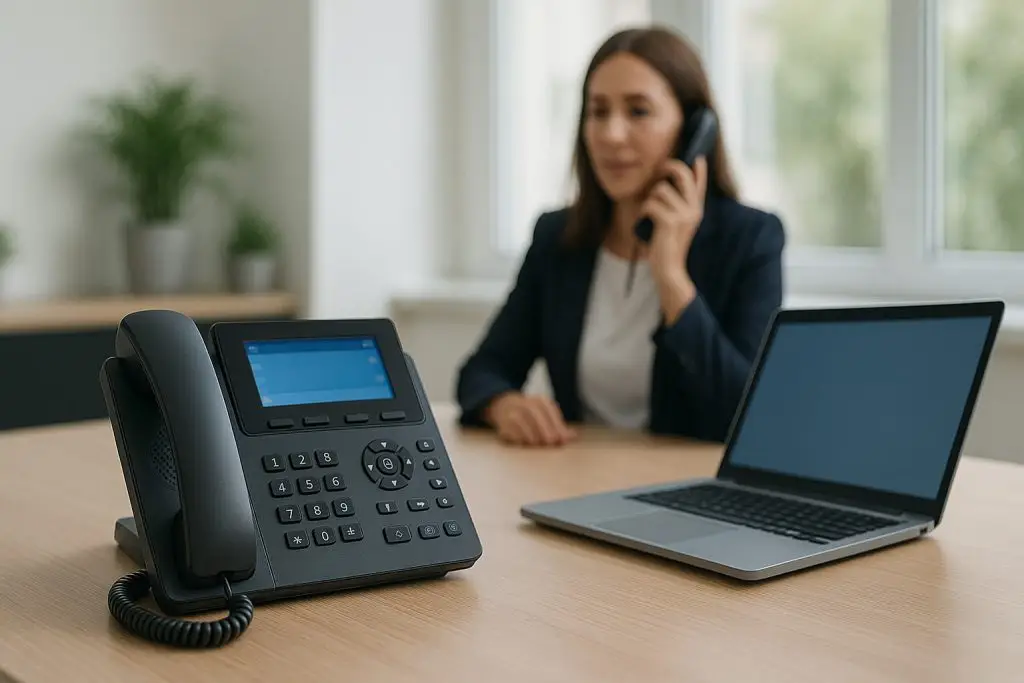
VoIP Phone Systems for Nonprofits & Charities
Get affordable VoIP Phone Service & a reliable phone system for your nonprofit organisation. Discover the ideal solution for charities and nonprofits.
How Titus Helps Nonprofits
Lower Running Costs
Cut back on expensive line rentals and international call charges. More of your budget goes towards your cause, not your phone bills.
Flexible Remote Working
Staff and volunteers can make and receive calls from anywhere. Perfect for teams working across sites or from home.
Better Donor Management
Integrate your phone system with your CRM. Keep donor details, call notes and fundraising records all in one place.
Need Help Choosing the Right Telecom Solution?
Use the form below to tell us what you need help with. Whether you’re setting up business telecoms for the first time or reviewing your current setup, we’ll give you a clear, useful answer to help you make the right decision.
Keeping a Community Connected
The Challenge:
A local nonprofit supporting vulnerable families needed a phone system that could handle calls across multiple sites without costing a fortune. Their old traditional phone lines were expensive and made remote working difficult for staff and volunteers.
What Titus Did:
Titus set them up with a flexible VoIP system. It included call routing, voicemail to email, and CRM integration. Now the team can stay connected, manage donor calls more easily, and work from anywhere without missing a call.
See What Our Clients Are Saying
I use Titus Telecom for my personal mobile phone, I was so impressed with the service, I switched my internet and phones for my small business to them. Everything works as it should, but the standout for me is the service Titus provide. The installation of the phone system came with face-to-face training and Karen was more than happy to hang around and check everyone in the team was happy with the new handsets. Karen helped set everything up including landlines transferring to mobiles via an app, voice mail and holiday closure messages. The team at Titus are really responsive – highly recommended.
Fantastic company! Super helpful and knowledgeable and i find unlike most other suppliers Titus constantly try to save you money rather than cost you more! It is really quite lovely. Biggest praise to Karen who literally bends over backwards to make sure we are happy and any little issues are generally resolved in minutes! 1st class service- would 100% recommend!
Very good customer service and well-priced. Would definitely recommend.
Nonprofit & Charity Telecom solutions
Reliable telecom solutions covering broadband, VoIP, phone systems, mobile, and IoT – built to support how you work.
Why VoIP Phone Systems Help Nonprofits Work Better
When you run a nonprofit organisation, your phone system is more than just a way to make calls. It connects you to donors, volunteers and the community you serve.
This guide explains how VoIP for nonprofits works, why it can be better than a traditional phone, and what to check before you choose a VoIP provider that actually helps you do more with your budget.
1. What Does VoIP Mean for Nonprofits?
VoIP (Voice over Internet Protocol) means you use the internet to make and receive phone calls. This can be far cheaper and more flexible than using a traditional phone line.
For many nonprofits, switching to a VoIP phone system means:
No costly landlines to maintain
Lower call charges, especially when calling abroad
Staff and volunteers can handle calls wherever they are
Some people worry that moving to VoIP will be complicated, but most VoIP providers make the setup simple. Once it’s running, you get extra tools that a traditional phone doesn’t provide.
2. How Do VoIP Phone Systems Work in a Nonprofit Organisation?
A VoIP phone system works by turning voice calls into data that travels over the internet. You can use a desk phone that’s VoIP-enabled, a softphone on your laptop, or a mobile app.
This means you can:
Make and receive calls anywhere you have internet connectivity
Use call routing to send incoming calls to the right team
Get voicemails sent to your email, so nothing gets missed
For a busy nonprofit organisation, this flexibility keeps you connected with donors and supporters even if you have multiple locations.
3. Why Are Many Nonprofits Moving Away from Traditional Phones?
Old telephone systems can tie you to a fixed location and fixed costs. You often pay for hardware, maintenance and separate phone lines for each room or desk.
Modern VoIP systems help nonprofits avoid that by:
Using one internet connection for voice calls and data
Cutting down on expensive phone line rental charges
Allowing staff and volunteers to use the phone system remotely
For a nonprofit, this frees up money and time for your actual cause.
4. What Features Should a Nonprofit Look for in a VoIP System?
The phone system you choose should do more than just make calls. The best VoIP for nonprofits includes tools that help you work efficiently.
Key features worth checking are:
Voicemail to email – keeps messages organised
Video conferencing – meet donors or your team face-to-face online
Virtual receptionist – greets callers professionally
Call routing – directs calls to the right people
Analytics – helps you track call volumes and donor interactions
These features help you stay on top of donor queries, staff coordination and day-to-day tasks.
5. How Does VoIP Support Fundraising and Donor Communication?
Good donor relations rely on clear communication. A well-chosen VoIP phone system means you can keep in touch with supporters easily.
It can:
Link with your CRM, so donor call records are always up to date
Support fundraising campaigns by handling high call volumes
Let volunteers and staff answer calls professionally from anywhere
Your business phone system then becomes a tool that supports your fundraising goals rather than slowing you down.
6. What Questions Should You Ask a VoIP Provider?
Before signing up for any VoIP service, ask some clear questions to see if they understand how nonprofits operate:
Can you add or remove phone lines easily?
Is there a mobile app for staff and volunteers?
What support do they offer if there’s an issue?
Do they have a track record with other nonprofit organisations?
How does their VoIP system integrate with your CRM?
The right answers will help you pick a phone system provider who fits your needs.
7. How Does VoIP Compare with a Traditional Phone System?
A traditional phone still works well for some small offices, but it rarely gives you the flexibility of a modern VoIP solution.
VoIP is different because it:
Runs over your existing internet connection
Doesn’t need you to install extra physical lines
Lets you manage calls and staff remotely
Adds features like call analytics and voicemail-to-email without extra cost
Switching can feel like a big step, but the savings and extra features often make it worthwhile for many nonprofits.
8. What Are the Biggest Benefits for Nonprofit Organisations?
A well-chosen VoIP system helps you:
Save money on hardware and phone line rentals
Streamline how you handle calls and donor queries
Collaborate better through video calls and remote working
Stay connected across multiple locations
Receive calls and messages even when working off-site
For a charity or community group, that flexibility means your team can focus on your mission.
9. How to Choose the Right Phone System for a Nonprofit?
Choosing the right phone system means being clear about what you need now and how you might grow later.
Ask yourself:
How many people need a line or extension?
Do you need a cloud-based phone system to support remote work?
Will you need to link calls with your CRM?
Do you hold regular virtual meetings that need good video conferencing?
What’s your budget for new hardware, if any?
Write these down before you speak with a provider so you get what you actually need, not a generic package.
10. Should You Keep a Traditional Phone Line?
Some small organisations like to keep a single traditional phone line as a backup. That can make sense if you work in an area with patchy broadband.
But for most nonprofits, keeping an old system running alongside VoIP can add costs. A hosted VoIP plan, with a reliable provider, usually gives you enough redundancy.
11. How Well Does VoIP Work with CRM and Other Tools?
One reason nonprofits choose VoIP is how well it links with your other systems. Many VoIP solutions offer integrations for:
Donor management and CRM systems
Project management tools
Email and analytics dashboards
When your phone system and CRM talk to each other, your team spends less time switching between platforms and more time helping your cause.
12. Is VoIP Reliable and Secure Enough?
A good VoIP provider will use encryption and security measures to keep your calls private.
To keep your VoIP phone systems secure:
Use strong passwords
Keep your software up to date
Train staff to recognise phishing
You’ll also want reliable internet. A stable connection makes the difference between clear calls and patchy ones.
13. What Equipment Do You Need for VoIP?
In many cases, you don’t need much more than what you already have:
A decent broadband connection
Desk phones or headsets that work with VoIP
Access to a mobile app if you want calls on the go
Some teams use softphones only – software on a laptop or tablet – which can cut hardware costs further.
14. How Much Does VoIP Cost for Nonprofits?
Costs vary by provider and features. Many nonprofits find VoIP is cheaper than traditional phone lines, especially for international calls or organisations with multiple sites.
Look for:
Charity pricing – some providers do this, some don’t
Clear contract terms – avoid hidden charges
Bundled tools – see what’s included, like video meetings or call routing
Being clear about your needs means you only pay for what you use.
15. Tips for Making VoIP Work Well
Once you have your VoIP phone system set up:
Test call quality before big donor calls
Use voicemail to email so messages don’t get lost
Keep staff trained on how to use any new features
Review analytics to see how your calls are handled
Doing this makes sure you get the most from your new system.






